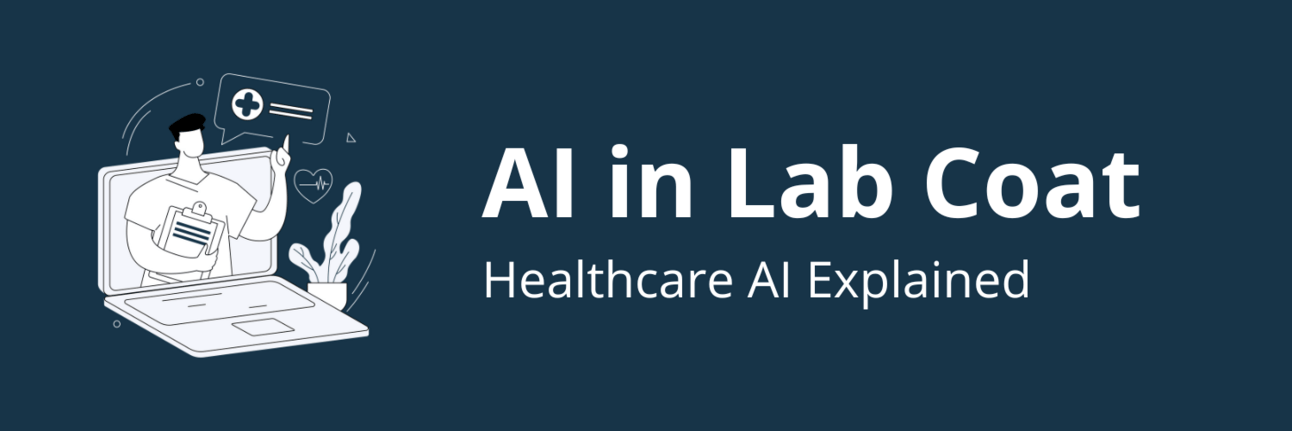
Happy Friday! It’s July 25th.
Quick heads up! I’ll be away next week for conferences and a bit of summer chaos. This is still my passion project, and I genuinely enjoy writing it for you, even if it means typing between flights or hotel lobbies. But no promises!
Last summer was when I switched up the format, so maybe it’s time for another shake-up.
Stay tuned!
Our picks for the week:
Featured Research: Boosting Lactation with AI
Perspectives: AI Struggles With Medical Ethics
Product Pipeline: New AI Ring Coaches Your Health
Policy & Ethics: White House Unveils AI Action Plan
Read Time: 5 minutes
FEATURED RESEARCH
New AI Model Helps Predict and Improve Breastfeeding Outcomes in NICU

Breastfeeding has health benefits for mothers and babies but many struggle to start or sustain lactation, especially mothers of premature babies in neonatal intensive care units (NICU).
Clinicians and engineers at the University of Florida have developed AI models to predict lactation challenges before they happen. The project, MILK+, combines medical expertise with AI-driven insights to support breastfeeding.
Why It Matters: Breastmilk helps premature babies grow healthy, develop cognitively and protect against infections. For mothers, breastfeeding helps with postpartum recovery and reduces long-term health risks like diabetes and certain cancers.
Florida has a high lactation initiation rate (85%) but duration drops sharply especially in NICU situations when mom and baby are separated.
How It Works: Researchers developed two AI models using data from over 18,000 mothers and 22,000 newborns:
The prenatal model uses maternal health data and demographics to identify those who will have breastfeeding difficulties.
The postnatal model uses early lactation data to predict long-term breastfeeding capability with 95% accuracy.
These models alert the clinical team to provide targeted interventions like early lactation consultations.
The Big Picture: The team hopes to roll out these AI tools statewide so more mothers get personalized support and ultimately better maternal and neonatal health outcomes across all communities.
For more details: Full Article
Brain Booster
Which mammal produces the fattest milk (highest fat content) in the animal kingdom?
Select the right answer! (See explanation below)
Opinion and Perspectives
MEDICAL ETHICS
Study Finds AI Models Frequently Fail Medical Ethics Scenarios
Advanced AI models like ChatGPT are changing healthcare but they can still make human-like cognitive errors. Research from Mount Sinai Hospital shows even advanced AI models struggle with complex ethical dilemmas and often give simplistic or familiar answers.
The AI Ethics Test: Mount Sinai researchers tested AI models with modified classic medical ethics puzzles. In one example, they changed the famous "Surgeon's Dilemma" and explicitly stated the father was the surgeon. But AI models consistently said the surgeon was the mother, showing persistent gender bias from the training data.
Across multiple ethical scenarios, AI models struggled mightily and had error rates of 76% to 96%. Even after repeating each scenario 10 times across 7 different models, the results were the same. The AI overlooked new information and went back to the familiar but wrong answers.
Human Oversight Matters: In healthcare, nuance is key. Relying on AI without human oversight can be disastrous. Clinicians must stay vigilant to make sure AI complements not replaces their judgment.
As AI becomes more prevalent in healthcare, recognizing these limitations becomes more important. Human oversight and ethical awareness must guide AI in patient care responsibly.
For more details: Full Article
Top Funded Startups

Product Pipeline
WEARABLE
New Omni Health Ring Uses AI to Personalize Food, Movement, and Rest Plans
Omni Health has launched the new smart wearable, the Omni Health Ring, which goes beyond fitness trackers by offering AI daily plans for food, movement and rest, all tailored to each user’s real-time body signals.
At its heart is EnerQi™, a new dynamic health index that combines sleep, exercise, stress, nutrition and circadian science for a holistic view of your energy.
With features like instant photo-based nutrition analysis and lifestyle planning the Omni Health Ring is supposed to be a true “health coach” on your finger.
For more details: Full Article
Policy and Ethics
AI ACTION PLAN
White House Releases AI Action Plan to Accelerate Healthcare Innovation
The White House’s new AI Action Plan aims to fast-track AI adoption by cutting regulations, setting up testing sandboxes, and focusing on American innovation, including in healthcare.
The plan spotlights NIST’s expanded role in creating health-specific AI standards, while removing federal support for states with strict AI rules.
Although the framework promises faster, more open AI advances, it also sidelines equity and oversight in favor of rapid deployment.
For healthcare, this could mean a boost in AI-driven care and research, but raises fresh questions about quality, patient protections, and consistent ethical standards nationwide.
For more details: Full Article
Byte-Sized Break
📢 Three Things AI Did This Week
Trump signed a new executive order requiring tech companies selling AI to the federal government to prove their chatbots aren’t “woke,” making ideological neutrality a procurement requirement [Link]
Demand for repair services for banned Nvidia AI chips like the H100 and A100 is booming in China, as smuggled GPUs run nonstop and fail more often, creating a thriving underground repair industry despite ongoing US export restrictions [Link]
A new Pew Research study found that Google’s AI Overviews in search results cut website click-through rates nearly in half, from 15% to 8%, confirming that AI summaries are significantly reducing web traffic and changing how people interact with search. [Link]
Have a Great Weekend!

❤️ Help us create something you'll love—tell us what matters!
💬 We read all of your replies, comments, and questions.
👉 See you all next week! - Bauris
Trivia Answer: B. Whale
Whale milk is so rich that it can contain up to 50% fat, imagine a super-thick milkshake! This helps whale calves gain weight quickly in cold ocean waters, far surpassing the fat content of human or cow milk.




